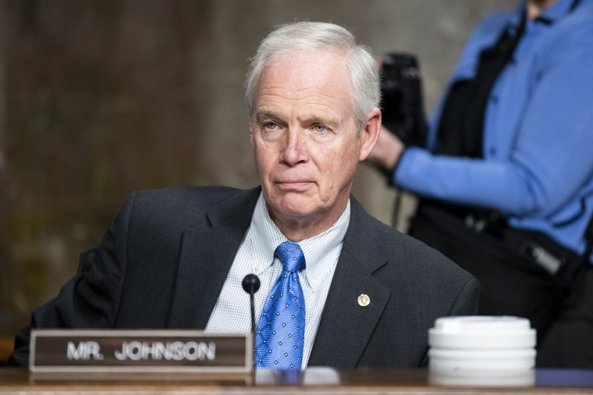
Senate Struggles With Trump’s Budget Bill Deadline
Top Republicans warn the Senate risks missing Trump’s sweeping bill deadline as internal divisions and fiscal concerns deepen.
Senate Faces Tight Timeline on Sweeping Budget Package
Senate Republicans are under mounting pressure to advance President Donald Trump’s major legislative package, but key GOP voices caution that the chamber may fail to meet its ambitious deadline. The legislation, dubbed the president’s “big, beautiful bill,” faces resistance from within the party, raising doubts about a vote before the Independence Day recess.
Senator Ron Johnson, R-Wis., a leading fiscal conservative, publicly warned that efforts to push the massive package through the Senate before July 4 are at risk. Johnson cited ongoing concerns among his colleagues, stating, “I think we have enough people that are saying, ‘No, we're not going to proceed to the bill prior to July 4.’ We need more time, but I think our efforts now are concentrated.”
The sweeping bill, which passed the House GOP last month, has been split among 10 Senate committees for review. Each committee is working to refine its section to comply with Senate rules and to address the priorities of various Republican factions. GOP leaders hope to present the bill for a vote next week, but divisions over the scope and scale of the package persist.
Calls for Deeper Cuts and Open Debate
Senator Johnson has repeatedly urged his colleagues to pursue significantly deeper spending cuts than those outlined in the House version, which targets $1.5 trillion in reductions. The Senate’s current proposal seeks $2 trillion in cuts, aimed at addressing the federal deficit. Johnson unveiled a 31-page report illustrating various deficit and economic growth scenarios based on the package, directly challenging findings from the Congressional Budget Office.
While House Speaker Mike Johnson, R-La., and President Trump have touted the House bill’s spending cuts as unprecedented, Ron Johnson countered that the U.S. is facing an “unprecedented level of spending increase” since the pandemic. “You can argue about the twigs and leaves on the forest floor, but I'm forcing everybody to take a step back and look at the forest. It's blazing, and we got to put this forest fire out,” he said.
Additional resistance has emerged over proposals to raise the debt ceiling and changes to Medicaid, which threaten to unite a coalition of dissenters. Because the reconciliation process circumvents the filibuster, Republican leaders cannot afford to lose more than three votes if they hope to pass the bill, as Democrats have been excluded from negotiations.
Senator Johnson expressed hope that Senate Majority Leader John Thune, R-S.D., would not rush the bill to the floor. “I really think it’ll be voted down,” Johnson remarked. He clarified that a failed vote should not be seen as a rebuke of party leadership or the president but as a call for more thorough debate. “It's just saying, ‘Guys, we need more time. The ball has been in the Senate court for two weeks,’” he explained.
Johnson has advocated breaking the massive bill into smaller segments, arguing for “at least two, if not three, bites at the apple” to ensure lawmakers fully understand its contents. He warned against the pitfalls of hasty legislation, saying, “Let's not do what Nancy Pelosi did and say, ‘Hey, got to pass this bill to figure out what's in it.’ Let's know fully what's in it. Let's do as President Trump asked. … He wants the Senate to make a better bill.”
The debate over President Trump’s budget bill underscores deep divisions within the Republican Party as it attempts to balance fiscal discipline with the demands of a sweeping legislative agenda. As the Senate’s self-imposed deadline approaches, the fate of the package remains uncertain, with internal negotiations and public scrutiny expected to intensify in the days ahead.






